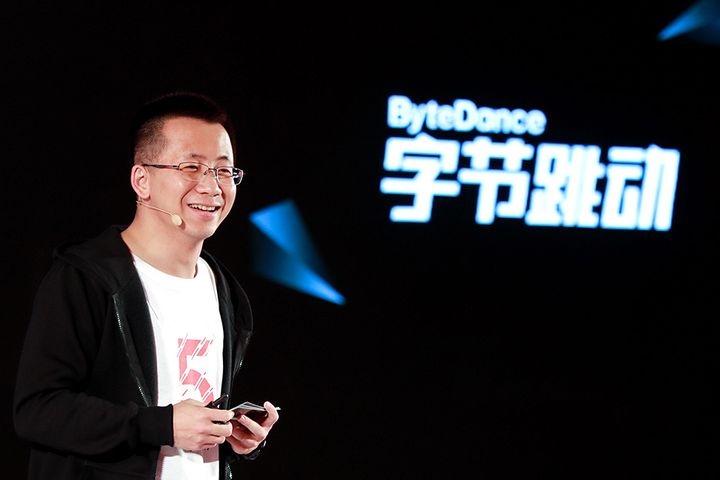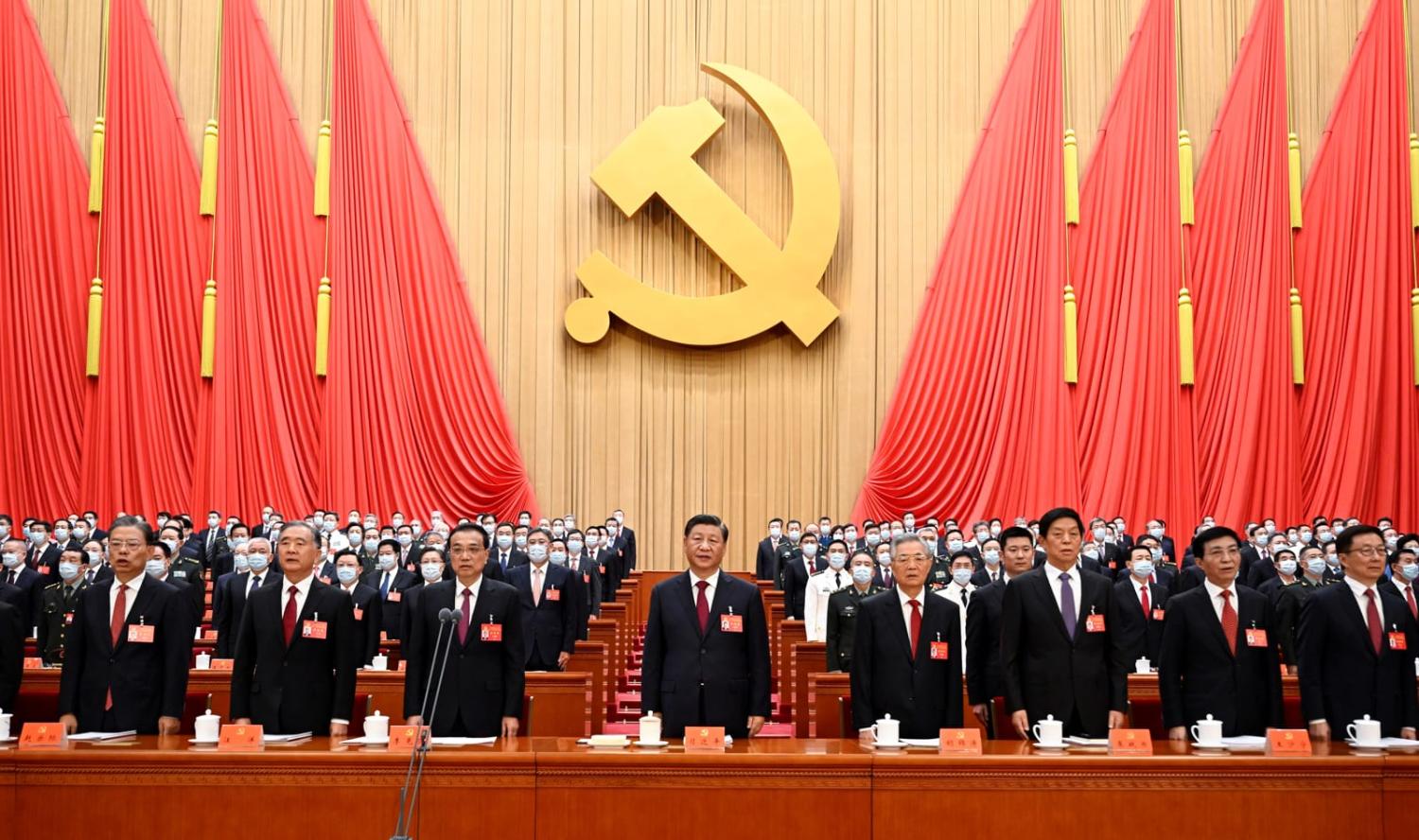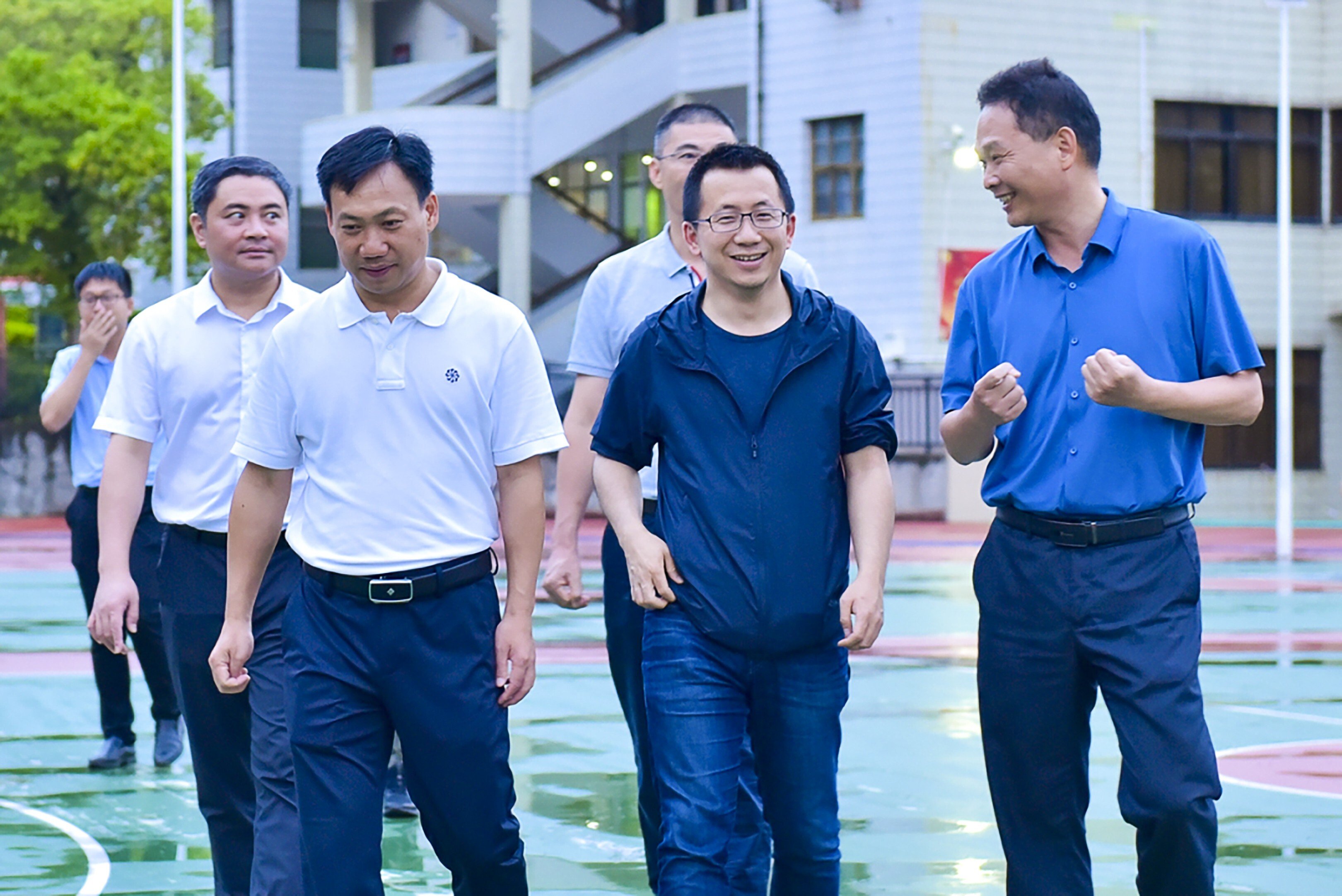Zhang Yiming: The Quiet Architect of TikTok's Empire, Now China's Richest Billionaire.
Imagine a tech titan, a man whose creations dominate billions of screens worldwide, yet remains largely an enigma. That's Zhang Yiming for you. This intensely private entrepreneur, the visionary behind TikTok’s parent company, ByteDance, has quietly, almost stealthily, amassed an astonishing fortune, hitting an estimated $58 billion by 2025.
Born on April 1, 1983, in Longyan, Fujian, China, this 42-year-old software engineer-turned-billionaire now sits unequivocally at the very pinnacle of China's wealth.
He’s surpassed giants: Tencent’s founder Ma Huateng? Bested. Nongfu Spring’s chairman Zhong Shanshan? Overtaken. It’s a remarkable feat, especially considering Zhang's famously reclusive nature, which stands in stark contrast to most of his more publicity-hungry peers.

While Zhang Yiming might not be a familiar name in Western living rooms, his influence is, without a doubt, universally pervasive. Ever found yourself sucked into that endless scroll of short videos? You've directly engaged with the colossal digital empire he meticulously built.
This empire hasn't just survived; it's thrived, expanding globally despite a minefield of geopolitical headwinds, enduring intense national security controversies, and facing unprecedented global scrutiny. What does that tell you? It's a powerful testament to the sheer disruptive force of his creations and, perhaps more profoundly, to Zhang's quiet, strategic brilliance.
Early Life and Formative Years: A Blueprint for Quiet Ambition

Zhang’s roots were humble, grounded in the practical realities of a civil servant household in Fujian province; he was an only child. Yet, even early on, his mind for math and science was evidently sharp, almost precocious. This initial academic brilliance propelled him to Nankai University in Tianjin, one of China's most respected institutions, where he plunged into software engineering.
It was amidst the everyday bustle of campus life that Zhang forged two connections that would redefine his future: he met Liang Rubo, his future business partner at ByteDance, and, notably, his future wife, whose identity he has guarded with unwavering dedication. Zhang graduated in 2005.
It seemed like a perfectly ordinary exit from academia, yet, looking back, it was the quiet genesis of one of the 21st century's most profoundly transformative tech stories.
His methodical approach and a preference for diligent, head-down work over public fanfare? Those traits would become the very bedrock of his astounding career.
Career Beginnings and Entrepreneurial Stirrings: Finding His Stride
Zhang’s first steps into the tech world weren't some overnight sensation; rather, it was a measured, deliberate journey. In 2006, he joined Kuxun, a travel search engine, where his technical prowess quickly became undeniable. He swiftly climbed the ranks, solidifying his reputation as one of the company's brightest engineers.
But a brief stint at Microsoft in 2008 proved thoroughly dissatisfying. He reportedly chafed at the suffocating corporate bureaucracy, soon realizing the traditional ladder simply wasn't for him. That experience crystallised his entrepreneurial bent, prompting a swift departure and a dive headfirst into the then-nascent startup ecosystem.
His first significant entrepreneurial venture was 99fang.com, a real estate search engine spun off from Kuxun. While this project remained relatively niche compared to his later behemoths, its importance can't be overstated.
It became Zhang's foundational training ground: building and scaling a tech product, grappling with team management, and, crucially, developing an intuitive understanding of user behavior.
All vital lessons he would later apply with masterful precision to fuel ByteDance's truly explosive growth.
The Genesis of ByteDance: Where AI Met User Desire
The year 2012. A modest Beijing apartment. This was the unlikely birthplace of ByteDance, co-founded by Zhang Yiming and his university acquaintance, Liang Rubo. Their idea was audacious, almost audacious in its simplicity: harness the sheer power of artificial intelligence to craft personalized content and news platforms that would dynamically, almost intimately, adapt to every user’s unique preferences.
The immediate outcome? Toutiao, a news aggregation app that took China by storm. Its sophisticated, AI-driven recommendation engine proved utterly addictive; Toutiao quickly amassed an astonishing 13 million daily active users. This early triumph wasn't just luck; it dramatically underscored Zhang's profound grasp of how to leverage AI for hyper-engaging content delivery.
ByteDance's burgeoning potential, naturally, didn't go unnoticed for long. In 2014, the renowned venture capital firm Sequoia Capital injected a substantial $100 million into the burgeoning company. This was more than just money; it was a powerful vote of confidence, catapulting ByteDance firmly into the upper echelons of the tech industry.
Yet, Zhang Yiming wasn't content with merely dominating the vast domestic Chinese market. He harbored a rare, almost singular global ambition, aggressively pushing ByteDance to extend its reach internationally – a strategic move that, back then, was quite a rarity among many Chinese tech founders, who often preferred to focus on their massive home turf.
The TikTok Revolution: A Digital Phenomenon Unleased

Zhang's global aspirations didn't just materialize; they absolutely exploded with the launch of TikTok (known as Douyin in China) in 2016. The short-form video platform caught on like wildfire. But the truly pivotal moment arrived in 2017 when ByteDance made a brilliant strategic acquisition: Musical.ly, a rival short-video app with a surprisingly strong user base in the West. The swift merger of TikTok and Musical.ly in 2018? Nothing short of a masterstroke, giving birth to a genuine global social media juggernaut. Within a mere two years, TikTok shattered download records, crossing two billion worldwide, and in 2021, it shockingly became the most visited website globally, even eclipsing internet titans like Google. Think about that for a moment.
Despite this dizzying, almost overwhelming, success and the immense global influence he commanded, Zhang Yiming, ever true to his nature, remained remarkably reclusive. Methodical, perhaps even detached. In a move that truly stunned many industry observers, he stepped down as CEO of ByteDance in 2021.
His stated desire? To "read more books and daydream" and dedicate himself to the company's grand, long-term strategic initiatives. Yet, his departure from day-to-day operations certainly didn't diminish his financial stake or his ultimate behind-the-scenes influence. He cleverly retained a significant 20–21% ownership stake in ByteDance, which, let's be clear, remains the primary wellspring of his formidable wealth.
Navigating Controversies and Geopolitical Crosscurrents: A Tightrope Walk

TikTok's meteoric rise and global ubiquity, as you might expect, inevitably drew intense scrutiny and considerable backlash. Concerns – legitimate concerns, many would argue – over data privacy, content censorship, and the ever-present specter of potential surveillance by the Chinese government led to widespread investigations in key markets including the U.S., India, and across Europe.
In 2020, the U.S. Department of Justice controversially labeled Zhang a "mouthpiece" of the Chinese Communist Party – an allegation that understandably fueled intense political pressure, though it's important to note no direct, conclusive evidence has ever been publicly confirmed.
The challenges, frustratingly, kept piling up. In 2023, ByteDance found itself under federal investigation in the U.S. for allegedly surveilling journalists, casting another long shadow over its data handling practices.
Concurrently, Zhang's name surfaced in a New York Times report, which, quite dramatically, accused him of having bribery ties to the disgraced Chinese official Lu Wei – an allegation that remains unresolved, adding yet another complex layer to his carefully constructed public persona. These ongoing controversies vividly highlight the delicate, almost impossible tightrope ByteDance, and by extension Zhang Yiming, must walk between ambitious global expansion and navigating an incredibly intricate, often hostile, geopolitical landscape.
Honors and Quiet Recognition: Accolades Amidst Anonymity

Tiktok UK Headquarters London
Despite the continuous stream of controversies and the relentless political pressures, Zhang Yiming has, rather quietly, accumulated a significant array of accolades. His innovative approach to technology gained early recognition when he was named to Forbes China's 30 Under 30 list in 2013.
Fortune included him in its 40 Under 40 list in 2018, a clear nod to his rapidly growing influence. Perhaps most notably, TIME magazine recognized his profound impact by including him in its prestigious list of the 100 Most Influential People in 2019. Yet, even with these high-profile honors, Zhang has steadfastly maintained his preference for anonymity, consistently avoiding interviews and rarely, if ever, making public appearances. This deliberate choice only deepens his enigmatic aura, doesn't it?
Personal Life and Anonymous Lifestyle: The Billionaire You Won't See

Zhang Yiming leads an intensely private life, a striking contrast to the often flamboyant public personas of other tech moguls. He reportedly resides in Singapore, a move widely speculated to be both strategically astute for ByteDance's international operations and personally motivated, offering a crucial degree of distance from the unrelenting scrutiny faced by prominent figures in mainland China. He and his wife, whom he met during their university days, have no known children and meticulously maintain their privacy, staying entirely out of the public eye.
Unlike so many billionaires who indulge in ostentatious displays of wealth, Zhang embodies an almost monastic simplicity. You simply won't find him with a flashy collection of luxury cars, nor will he be headlining major tech conferences or appearing on talk shows.
His net worth may be a staggering $58 billion, but you’d be hard-pressed to find paparazzi tracking his movements or chronicling his daily activities.
His preferred lifestyle unequivocally emphasizes discretion and a laser-like focus over anything resembling opulence.
How He Made His Fortune: The Unseen Power of ByteDance Equity
Zhang’s truly immense wealth is overwhelmingly tied to his substantial equity in ByteDance, the privately held technology conglomerate he founded. Now, unlike many publicly traded giants, ByteDance's shares aren't openly traded on major stock exchanges like NASDAQ or NYSE. Instead, its valuation is a more opaque process, determined through private funding rounds, discreet secondary market transactions among accredited investors, and internal employee stock buyback programs. It’s a very different ballgame.
As of early 2025, Zhang Yiming is understood to hold a significant 20-21% stake in ByteDance. While institutional investors collectively hold a larger percentage (around 60%), and employees own another 20%, Zhang's individual ownership remains the largest among founders and stands, unequivocally, as the cornerstone of his vast net worth.
The valuation of ByteDance itself has experienced quite the rollercoaster ride, reflecting both its explosive growth and the significant regulatory headwinds it faces, particularly in the U.S. In late 2024, ByteDance undertook employee stock buybacks at a valuation hovering around $300 billion. However, by early 2025, some internal assessments by major investors like SoftBank Group, Fidelity Investments, and T. Rowe Price Group had marked up the company's valuation to over $400 billion, with some reports even indicating buyback offers at a staggering $417 billion. Conversely, some secondary market trades in early 2025 showed valuations closer to $215-$230 billion, largely due to uncertainties swirling around the potential U.S. ban or forced sale of TikTok. It's a complex picture.
Despite these valuation fluctuations, ByteDance's financial performance has been remarkably robust. In a year when much of China’s tech sector struggled, ByteDance’s profits surged an incredible 60% year-over-year. The company's revenue in 2024 was estimated at $146 billion, with projections aiming for $186 billion in 2025, pushing it close to Meta Platforms' projected earnings. This impressive revenue growth, fueled by its diverse portfolio of apps including TikTok, Douyin, and Toutiao, has directly amplified Zhang's personal fortune by over $10 billion.
That significant financial leap ultimately helped him dethrone bottled water tycoon Zhong Shanshan and Tencent’s Ma Huateng, officially cementing his status as China’s richest man for the first time in March 2025, according to Hurun’s Rich List. Zhang's assets are overwhelmingly concentrated in this ByteDance equity. And while he maintains an exceptionally private profile, there's no public indication of significant diversification into other traditional asset classes like extensive real estate portfolios, high-value art collections, or widespread public stock holdings beyond his core company. His immense wealth, quite simply, is a direct reflection of ByteDance's continued market dominance and its remarkable, almost relentless, ability to monetize its vast global user base through advertising, e-commerce, and other innovative services.
Business Philosophy and Enduring Legacy: The Mind Behind the Machine

Zhang Yiming’s business philosophy is notably minimalist and intensely analytical. He consciously steers clear of flashy headlines and grand public pronouncements, preferring to channel his energy into the core tenets of product quality, relentless innovation, and the strategic deployment of artificial intelligence.
In an internal memo shared with ByteDance employees upon his resignation as CEO, he articulated his grand, long-term vision, expressing a profound hope to "explore new possibilities and help the company continue pushing boundaries" in the fascinating realm of technology and human interaction.
Regardless of the ongoing regulatory challenges and geopolitical pressures that TikTok continues to navigate in Western markets, Zhang Yiming’s legacy as the visionary mastermind behind one of the world’s most disruptive and influential digital platforms is undeniably secure.
He has fundamentally reshaped the landscape of social media, revolutionized content consumption, and pioneered AI-driven personalization, leaving an indelible mark on the digital age. A mark that simply cannot be erased.
People Also Ask
Is the CEO of TikTok a billionaire? No, not the current CEO, Shou Zi Chew, at least not publicly known to be a billionaire. The primary billionaire associated with ByteDance, TikTok's parent company, is its founder, Zhang Yiming.
Who is China's richest man? As of 2025, that title belongs to Zhang Yiming, with an estimated net worth of approximately $58 billion.
Is Zhang Yiming still the owner of TikTok? Yes, he definitely is! While Zhang Yiming stepped down as the CEO of ByteDance in 2021, he crucially retains a significant ownership stake, estimated to be around 20–21%, in ByteDance, which is the company that owns TikTok. So, yes, he remains a key owner.
How did Zhang Yiming make his money? Zhang Yiming accumulated his vast fortune primarily through founding ByteDance, the incredibly successful technology company responsible for creating platforms like TikTok, Douyin, and Toutiao. His wealth, quite simply, is derived from his substantial equity ownership stake in this privately held company.














